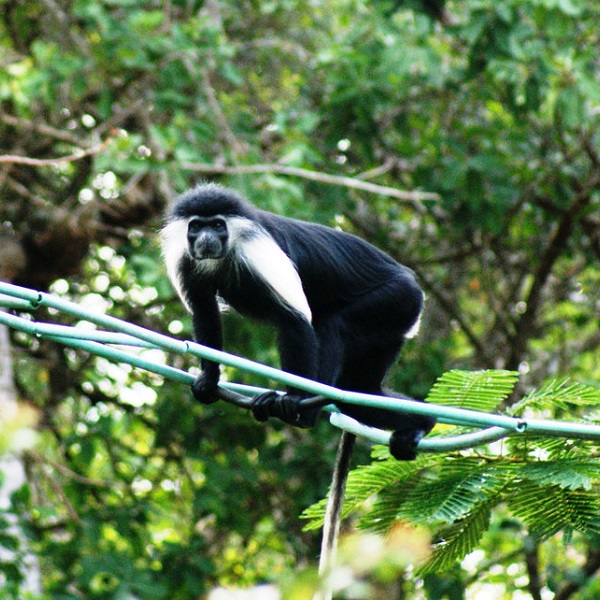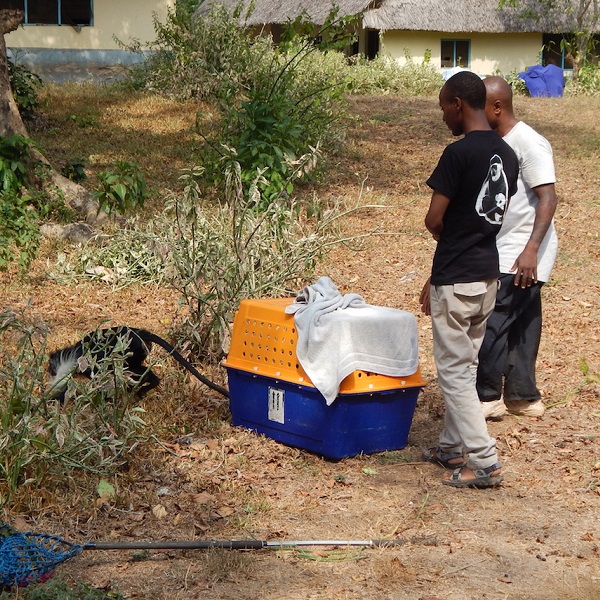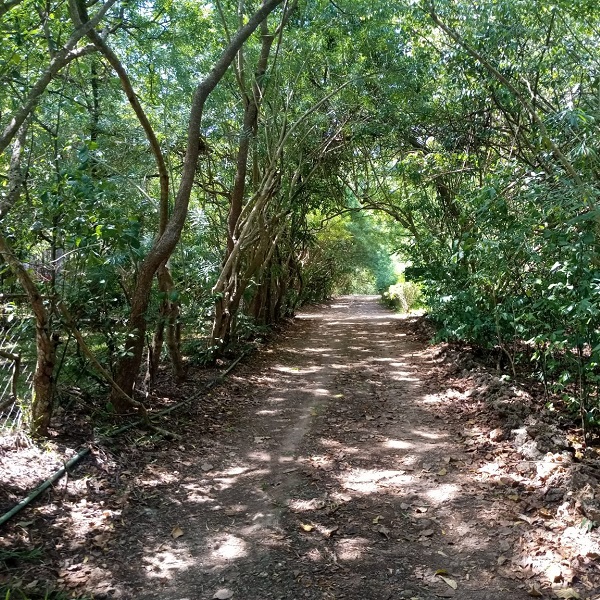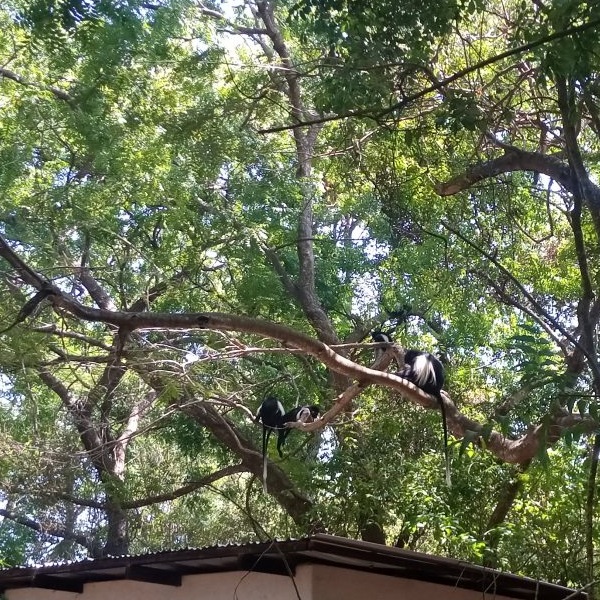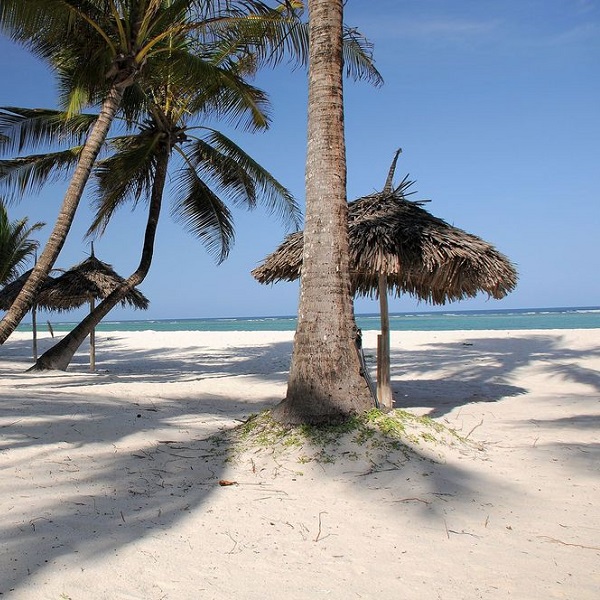Colobus Monkeys Conservation
Next start date: Volunteers can Join any time
Colobus Monkeys Conservation
If you want to make a difference and contribute to the nature by working towards conserving animals and their habitat this is an opportunity for you to step in. Colobus Conservation is a not-for-profit conservation organization designed to promote the conservation, preservation, and protection of primates like the Vulnerable Angolan Colobus monkey (Colobus angolensis palliatus) and its coastal forest habitat in south eastern Kenya. The organization was established in 1997 in response to an outcry from local residents about the high number of deaths of colobus monkeys on the Diani Beach road.
Highlights:
- Programs is open throughout the year and starts anytime
- Affordable fees from $330
- Work with organization staff close to Colobus in their habitat
- Run activities that help conservation of Colobus and forest
- Immerse yourself in the rich cultures and traditions of the local village
- Interact with other volunteers in your day to day activities
- Enjoy the ambiance of a beautiful environment close to finest beaches of Kenya
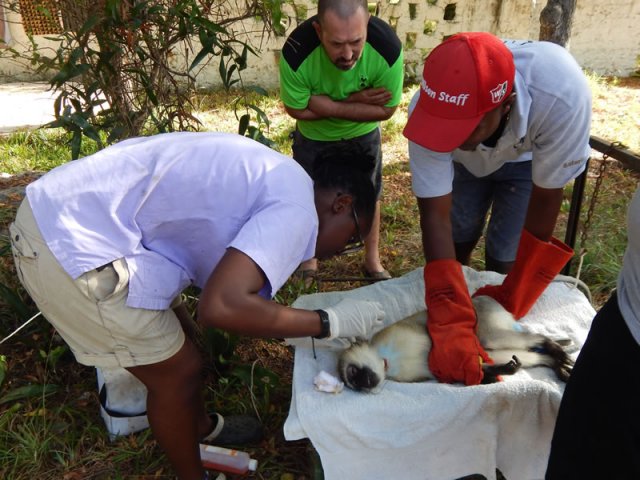
This program is Ideal for:
Volunteers who are interested in conserving Nature and Wildlife with love for animals, You’ll be supported by the local teams and placement staff so no working with wildlife experience is required.
What to expect and how you will make a difference
In this program you will work with a Wildlife and forest conservation organization that was formed in 1997 to carry out activities primates conservation and awareness in the community. You will also work with the organization staff other voluteers if any and Local Schools (during School days). Volunteers will also experience the local cultures by living within the community. Some of Volunteer activities include:
- Feeding primates awaiting release
- Cleaning enclosures that protect the young and vulnerable animals
- Primate orphan care
- Community education programmes
- Community outreach
- Primate release monitoring
- Primate behavior data collection
- Human-primate conflict resolution
- Primate census
- Tree growth surveys
- Enclosure enrichment provision
The aim of this project is for volunteers to provide their invaluable time and contribute through physical and mental support to the efforts of the locals community in conserving the local wildlife and nature
Why you should take part in Colobus Monkey's conservation volunteering
When you volunteer in Colobus Monkeys conservation in Kenya you’ll be adding value to the local community, global climate impact while also developing personally and professionally by:
- Promoting environment conservation which impacts on climate change Globally
- Helping local populations appreciate what they have and take part in protecting it
- Helping in reduction of animal deaths caused by human wildlife conflict through creating safe pathways for the primates to use.
- You will help in Imparting knowledge to young school going children and promotion of cultural exchange
- You will Immerse yourself in rich Kenyan cultures and traditions in a special way
- You will discover Kenya’s rich heritage, history and its varied beautiful landscapes and wildlife
Volunteer requirements
- Volunteers under the age of 18 must be accompanied by a parent or guardian to participate in this program and may be asked to provide additional documentation to the local team
- All volunteers aged 13+ are required to provide a criminal background check to Siriafrika Ecoventures prior to departure. If unable to obtain a criminal background check, can provide two character reference letters instead
- All volunteers are required to have adequate volunteer travel insurance
- All volunteers should be able to communicate in English.
Location
The Colobus Conservation is situated in Diani, South Coast Kenya From Mombasa Island, one has to cross the channel south by ferry. You’ll exit ferry onto Mombasa – Likoni- Ukunda Road for 24kms south to Ukunda junction , then you’ll proceed to Ukunda – Diani road for approximately 1.5km then take right turn to Diani Beach road Take the first left past KFI supermarket along the Diani beach road (six and a half kilometers from the Ukunda junction) There are signs from there to direct you.
Arrival and orientation
There are two options of arrival that volunteers can choose from:
First option: we recommend this option for volunteers staying shorter period and would like to maximize on their time at the placement. volunteers to book their flight to arrive at Moi international Airport in Mombasa Upon arrival volunteer will be met by one of Siriafrika Ecoventures placement coordinator and be transferred to a family stay accommodation in Mombasa for Bed and breakfast. Volunteers who arrive before 2pm will be transferred directly to their host family at the placement and they will be orientated at the project site the next day.
Those who will arrive later than 2pm will be accommodated in Mombasa, on day2 while in Mombasa Volunteers will have orientation with option of Mombasa city tour (Fort Jesus, Mombasa Old town, Haller park and Market ). After lunch volunteers will be driven to Diani to arrive in the late afternoon at the host family. On day3 volunteer will be taken to the colobus project to meet the organization staff and other volunteers if any and be integrated in their program of work and activities at the project.
Second Option: Volunteers can opt to arrive in Nairobi Jomo Kenyatta International Airport (JKIA) in this case volunteers will spend 2 nights in Nairobi. on the second day following arrival day volunteers will have orientation with option of Nairobi city tour (Girraffe centre, animals orphanage, Elephants orphanage e.t.c). volunteers will travel by train the next day to Mombasa then have a transfer to the project.
Typical Volunteer Schedule
First Day
On your first day of volunteering, you will be escorted to your placement by a local coordinator and introduced to the placement staff you will be working with.
Weekdays
Work and break times are dependent on each project and placement. A typical volunteer day would be as follows
7:00 – 8:00 AM | Breakfast at Volunteers accommodation. |
8:00 – 12:00 Noon | Volunteers leave accommodation and head to field for work schedule |
2:00 – 5:00 PM | Work at the placement usually ends. Volunteers are free to relax, prepare for the next day or do some shopping and sightseeing. |
8:00 PM | Dinner at the homestay. |
Weekends
During the weekends, volunteers have spare time and usually relax or take the opportunity to explore other parts of southern coast . Volunteers can visit Shimba hills national reserve, Kaya forest, Diani beaches, Wasini marine park etc
Long weekends can be taken to travel further afield to destinations, such as Mombasa and Malindi for a beach holiday experience with other Mombasa attractions such as the fort Jesus, Haller park and the Mamba village volunteers can decide on this option at the end of their stay also and take departure flight from Mombasa.
Accommodation
Volunteers are accommodated in a homestay with a local family. It is exciting to stay with a family, as this is an opportunity to learn the Kenyan way of life, meet local people, eat local food, speak the local language (Kiswahili) and engage in local customs and traditions.
Living is basic, yet still comfortable, and most homestays have electricity. You can expect to share a room with other volunteers, however in some homestays volunteers have their own rooms. It is important to note that Kenyan homes have a shared living environment in which couches – are used for sitting and dining.
Bedding is provided, but it is recommended you bring your own towel and toiletries, as well as a sleeping bag if you wish to travel on the weekends.
Wi-Fi is not available in the majority of the homestays in the village. To keep connected, you can purchase a local SIM card with data for an unlocked mobile phone.
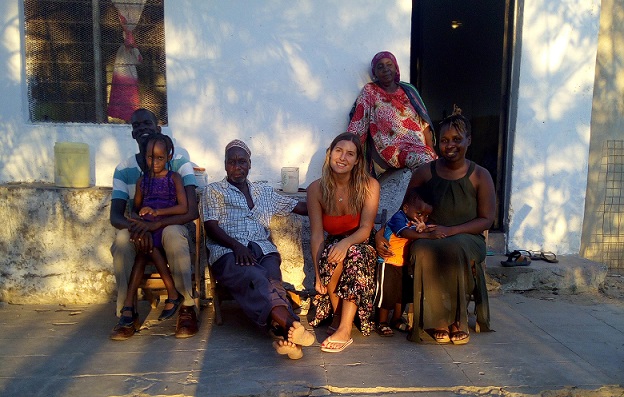
Meals
The wide range of Kenyan tribes, ethnicities and cultures are reflected in the diversity of the local cuisine. Volunteers are provided with three meals a day which are served at the accommodation and tend to be rich in carbohydrates.
Breakfast is served around 7am and generally consists of chai tea, toast, fruit and sometimes mandazi – African donuts. A typical lunch can include vegetables with rice, occasional meat and fruit and is served around 1pm. If you are not returning home from your placement for lunch, you will need to pack your own lunch in the morning. Dinner is usually served around 8pm and usually includes traditional food, such as ugali, a cornmeal porridge; mboga, a vegetable dish, mashed potatoes with peas and corn, meat and vegetables.
Tap water is not safe to drink without treatment or boiling , though bottled water is readily available. Volunteers typically drink about two liters per day, which adds up to cost around US$10 a week.
If you have any special dietary requirements, please make a note on your application so arrangements can be made. However, it is important that volunteers should not expect to eat as they normally do at home.
Pricing
Duration | Program FeeDue 30 days before you start, or within 48 hours if you register inside of 30 days. |
|---|---|
| 1 week | $350 |
| 2 weeks | $700 |
| 3 weeks | $1050 |
| 4 weeks | $1400 |
| 5 weeks | |
| 6 weeks | |
| 8 weeks | |
| 10 weeks | |
| 12 weeks |
What is included
- Accommodation
- Meals
- 24/7 in-country support
- In-country program orientation
- Pre-departure support from your Program Manager
- Airport pick-up
- Personalized preparation tools, guides and check lists
- Certificate of International Volunteering
- A 5% international banking fee is added at point of payment.
- Additional things to budget for include: Visa, flights, travel insurance (mandatory), vaccinations, public transport to and from your placement each day, and criminal background check.
- Recommended spending money: Volunteers in Kenya generally find US$150-200 per week to be sufficient for expenses.
What to bring
Clothes
– Moisture wicking shirts
– Disposable t-shirts
– Lightweight pants or shorts (when culturally appropriate)
– Clothing with Insect Shield where necessary
– Sturdy shoes
Accessories
– Sunscreen
– Mosquito repellent (possibly with DEET)
– Bandana
– Sunhat
Toiletries
– Shampoo & conditioner
– Toothpaste & toothbrush
– Deodorant
First Aid Kit Additions
– Motion sickness medicine
– Anti-diarrheal medicine
– Ibuprofen
– Antihistamine
– Antibacterial ointment
– Sunburn cream
Travel Essentials
– Reusable water bottle
– Wet wipes & hand sanitizer
– Flash Light

